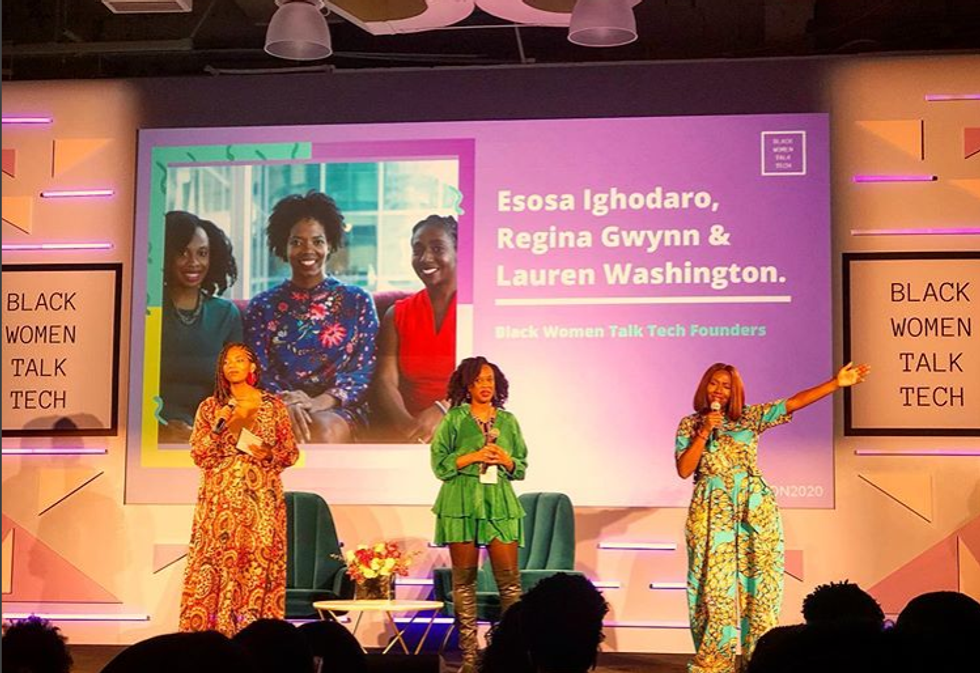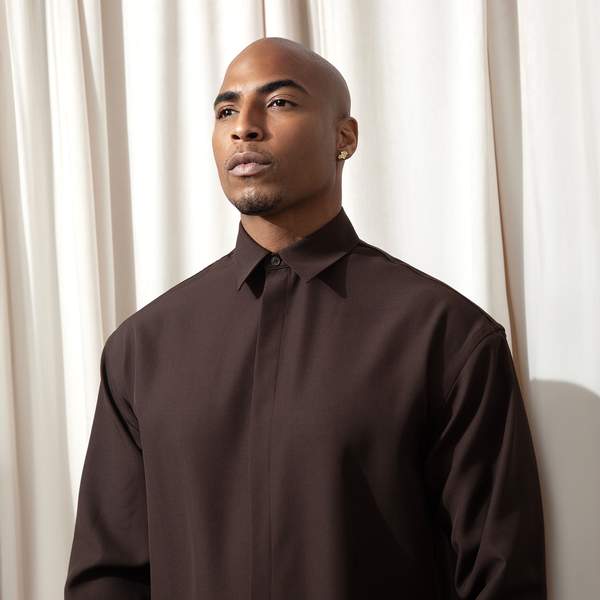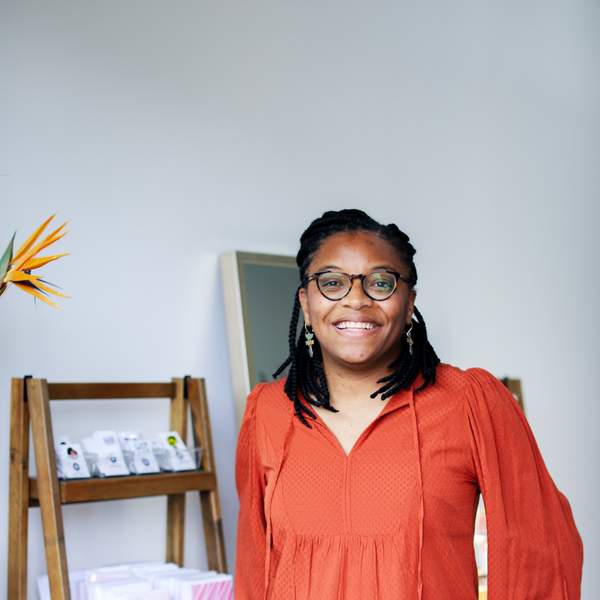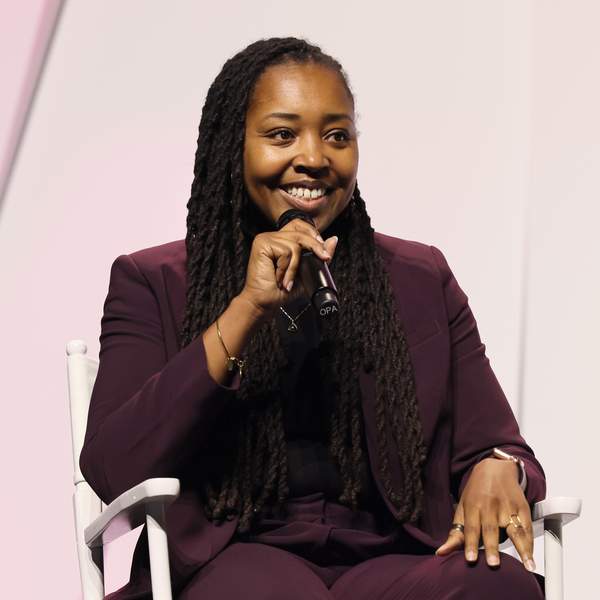I'll be honest: I am not one who loves conferences. As a media professional who has not only had to cover but host and assist in the planning of a few major ones, I've experienced a bit of burnout. Well God, as He usually does, sent a little piece of heaven in the form of the Black Women Talk Tech: Roadmap to Billions conference to reignite a fire in me to connect with awesome black female professionals and entrepreneurs and step up my own game, both professionally and personally.
Here are 10 things I learned at the BWTT conference, held over three days in New York City, that should do the same for my fellow go-getting sistas looking to make 2020 one of their best years yet:

1. Self-care and fun are necessary, not optional.
BWTT was created by three amazing entrepreneurs: Lauren Washington, co-founder of Fundr, Esosa Ighodaro, co-founder of Nexstar, and Regina Gwynn, co-founder of TresseNoire. It's a collective of more than 500 entrepreneurs in 10 U.S. and international chapters. The conference, in its fourth year, brings women of color to network, share ideas, learn from and rub elbows with top-tier entrepreneurs who are multi-million-dollar success stories in their own right.
A common theme at the event was the importance of self-care and having fun. Not only was this part of the actual conference---via a beauty bar, a Nike dance therapy class, and sessions about dating and mental health---but it was part of panelists' formulas for growth and longevity:
"I love dancing--salsa, house, swing. I find the things that bring me joy and commit to doing them," said Maisha Walker, founder of Message Medium who has worked with brands including Mars Chocolate, Columbia and Unilever (the company behind some of your favorite beauty, home care, and food brands).
Fun is a must for Rakia Reynolds, CEO of Skai Blue Media, a company that has clients including HSN and Dell. "I have to do fun things. See a movie, walk around, see something green, eat something green. Watch something that might be super-mindless."
2. Silence is indeed golden.
For Courtney Adeleye, CEO of The Mane Choice--a multi-million-dollar beauty brand that has products in Target and Sally Beauty to name a few--self-care is related to something many of us might struggle with. "My sweet spot is silence. When I travel, I haven't turned on a TV in years. I allow myself time to just think. That's normally when the most amazing ideas come."
3. Your online presence means more than just posting frivolously---even if you're not an entrepreneur.
Walker said it's important to utilize sites many of us might overlook or even neglect such as LinkedIn: "Build the audience on LinkedIn and make sure it's full of people you actually want to do business or connect with. Learn the technology and then learn how to leverage it effectively."
And ladies, it's OK if getting a handle on your social media platforms seems overwhelming or is just not your thing. "Learn as much as you can, read articles, or hire a consultant. Focus your efforts," Walker added.
4. You can use tech to hustle smart, not hard.
Another common suggestion among panelists included using automation, whether through apps (a good one I use is Crowdfire) or through added tools that you can buy for Websites, to post updates to your social accounts, provide calendar reminders for upcoming events, or even for celebrating birthdays and other key milestones among your network. You can pretty much automate many aspects of your life in order to make things simpler and focus on more important daily tasks.
Automation has also helped me relieve anxiety and get more organized.
For all my women hustlers out there with products to sell, Walker suggests, "When doing a traffic campaign, you want to think about those basic demographics of who your audience is." She also added that using tools like retargeting campaigns---which repeat exposure to your ads to targeted populations on social as well as other Websites----to get the most out of your advertising.
5. Others in your industry are potential partners, not competition.
Partnerships are a key way to work smart as well. The founders of BWTT pooled their resources, expertise, and networks together to bring powerhouse sponsors including Walmart, Shea Moisture (which awarded prizes worth more than $10,000 in this year's pitch competition), Microsoft, Ketel One Vodka, Target and several more.
Many of the panelists, no matter what the subject, talked about how important teaming up can be. "Stop thinking that every woman in your industry is competition," said Adeleye, who has featured many of the awesome women in her network in her own event, the Bawse Conference.
6. Rejection makes a boss bigger and better.
It was great to see the fellas in the room supporting all this black girl magic, and Ron Johnson, founder and CEO of Triton Consulting, was one of them. The panelist had some key, eye-opening things to say about rejection and failure: "It's part of the grooming and pruning process," he said. "I went through journeys of rejection. You can take it as an empowering experience where those are just spaces you weren't supposed to be in the first place. One of the things I try not to get distracted by is the why and how things did not work out for me the way I thought they should have because that can really distract you from where your destination is."
7. Sometimes saying 'no' is better than saying 'yes.'
"One of the No. 1 things I had to learn is the power of 'no'---giving and receiving," Adeleye said. "You can't spread yourself so thin. Be OK with your decision and not feeling the need to explain it.."
Walker agrees: "We only have a certain number of hours in a day and certain number of resources. I had to be really adamant with myself about not going beyond that. This year is my year of saying 'no'. It doesn't have to be 'no' forever but it's 'no' for right now."
8. What you thought impossible might actually be possible.
Andrea Evans, a BWTT speaker, patent attorney, and author of All About Inventing, knows how important it is to act on something you feel led to produce. "I've grown with my clients. I've seen them start with an idea on a napkin and [then get products into] Target or on Shark Tank," Evans said. "It's about that confidence---believing in yourself and taking action. The only thing that separates a billionaire inventor and you in your garage is that they took the steps to protect their invention."
9. Where there's a will, there's a way.
When it comes to making your dreams come true, the resources are out there. Several panelists were living proof of this including Mandela Schumacher-Hodge Dixon, CEO of Founder Gym, an online resource that has helped underrepresented founders raise more than $40 million in startup capital; Crystal Etienne, founder of Ruby Love who launched her business on her own and grew it to a worth of more than $10 million; Jasmine Lawrence, who simultaneously runs beauty brand Eden BodyWorks while working full-time for a major social network; and Chris-Tia Donaldson, a cancer survivor who earned a Harvard degree and runs a beauty brand called Thank God It's Natural (TGIN).
10. Get out of your own head and into a tribe.
Tiffany Dufu, who has a very clear understanding of her vision in life, said, "My life's work is advancing women and girls. I already know what my tombstone says: 'She got to as many women as she could.' I am not going to be able to get to as many women as I can doing everything by myself."
Her platform, called The Cru, actually makes it easier for women to find groups that fit their needs. You apply via the Website and are paired with nine other women to help you reach your personal and professional goals. "I've found, while working with and connecting thousands of people over the years, that even though we have a lot of people around us, we largely perceive personal and professional journey as a solo endeavor, not a team sport. There's but so much impact you can create through your own work, ingenuity, prowess or intellect...and I think that in order for us to grow our impact we have to understand that other people are involved, and we've got to figure out how to achieve results with other people as well."
Reynolds also finds a lifeline in making connections. "I have to go out and talk to people. Human interaction and talking to other people keeps me fueled," she said.
Point taken. Point truly taken.
To find out more about Black Women Talk Tech and their events, visit their Website or follow their Instagram @blackwomentalktech.
Featured Image Via Shutterstock
- Lessons of Successful Entrepreneurs - Harvard Business School ... ›
- What Makes A Successful Entrepreneur? Five Lessons From VCs ... ›
- 13 Biggest Failures from Successful Entrepreneurs ›
- 11 Important Business Lessons from Successful Entrepreneurs ›
- 6 Business Lessons from Successful Entrepreneurs To Really ... ›
- 7 Powerful Lessons from Successful Entrepreneurs - VirTasktic ›
- 5 Things Successful Entrepreneurs Like Elon Musk Know That You ... ›
- 4 Lessons That Most Successful Entrepreneurs Had to Learn the ... ›
- 10 Smart Life Lessons From Successful Teenage Entrepreneurs ... ›
- 8 Success Lessons Entrepreneurs Can Learn From Chick-fil-A ›



























